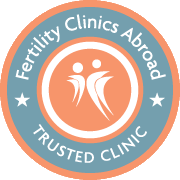Optimizing your chances of achieving pregnancy
by Thaleia Chatziantoniou, last updated 07 Jul 2022,
5 min read
After they’ve made the decision to have a baby, many women try to do everything they can to conceive during their next cycle. But it’s important to remember that getting pregnant can take time.
Health and Fertility
Scheduling a preconception checkup with your doctor is an important step. A preconception visit is similar to an annual physical one but includes additional care focused on family planning and pregnancy.
In particular, a preconception checkup can help identify any health issues that may affect your chances of conception or having a healthy pregnancy.
Your preconception checkup may include things like a physical exam, and a review of your health and reproductive history, past pregnancies and current medications. Blood tests and sonographing imaging may also be performed. This visit is also an opportunity to voice any questions or concerns you may have.
You and your partner should each schedule appointments for yourselves so that you know everything you can when you start trying to conceive.
Fertile window
Knowing when ovulation happens is critical when you want to get pregnant because the window of opportunity to conceive is fairly small every month.
Conception is only possible from about five days before ovulation through to the day of ovulation. These six days are the “fertile window” in a woman’s cycle and reflect the lifespan of sperm (up to five days) and the lifespan of the egg (24 hours). But the likelihood of conceiving is dramatically increased if sexual intercourse occurs in the three days leading up to and including ovulation.
If a woman has sex six or more days before she ovulates, the chance she will get pregnant is virtually zero. Then, the probability of pregnancy rises steadily and is 27-33% in the three days leading up to and including ovulation. From that point, the probability of pregnancy declines rapidly. Twelve to 24 hours after ovulation, a woman is no longer able to get pregnant during that cycle.
If all this seems too complicated, an alternative is to have sex every two to three days. That way all bases are covered without getting too technical about when the chance of conceiving is greatest.
Frequent sexual intercourse
One of the most common questions among people trying to conceive is: How often should I have sex if I’m trying to get pregnant?
It depends on your preferences as a couple, and whether there are any known fertility issues.
Studies have shown that couples who have sex every day or every other day during the fertile window have the highest rates of pregnancy. Also, it is recommended to stick to just once a day during the fertile window.
If scheduling your sexual intercourse isn’t enjoyable or even possible, set a goal to have sex throughout your cycle. This can get you and your partner into a regular sex routine, which can carry you into the fertile window.
Weight balance
Maintaining a healthy weight prior to conception can help safeguard your baby’s future health and development. Having a BMI of between 20 and 25, can help reduce the risk of having a low-birth-weight baby, and pregnancy complications such as high blood pressure and diabetes.
Exercise
If you're looking to improve your health and fertility, you may assume that adding exercise to your routine is one of the best actions.
Exercise has many benefits for your health. Increasing moderate physical activity has positive effects, especially for individuals dealing with obesity.
It is true that obesity can lead to lower fertility. Therefore, a combination of diet and exercise is generally recommended. Regular exercise can also lower stress, which is important when you're trying to cope with infertility.
Diet and lifestyle
When trying to conceive, taking care of your overall health is important, and a healthy diet is a large component of that. While there’s no direct relationship between a healthy diet and conception, diseases and conditions caused by an unhealthy diet can harm fertility. Certain ingredients in popular foods and drinks, such as trans-fat, caffeine, and skim or reduced-fat milk, have been linked to infertility.
Be careful about what you’re putting in your body and try to stay away from processed foods as much as possible. Eating a well-rounded diet full of clean foods and veggies will optimize your body’s performance and prevent infertility that may be exacerbated by harmful ingredients.
Generically, making some healthy lifestyle changes can increase your chance of becoming pregnant and having a healthy baby. Therefore, minimizing the alcohol and caffeine intake and avoiding smoking will improve your health condition.
Environmental Exposure
Certain industrial chemicals, environment pollution and radiation are known to contribute to or cause infertility. Lead poisoning, for example, has long been associated with infertility in both men and women.
Age
It's a biological fact that as women and men age, their potential to have children decreases, although the exact time when this starts to happen can vary among individuals.
A woman’s age is the most important factor affecting her fertility and her chance of having a baby.
A woman’s peak reproductive years are between the late teens (around 20) and late 20s. By the age of 30, fertility (the ability to get pregnant) starts to decline. This decline becomes more rapid once you reach your mid-30s. By 45, fertility has declined so much that getting pregnant naturally is unlikely for most women.
For men younger than 40, there is a better chance of fathering a child than those older than 40. The quality of the sperm men produce seems to decline as they get older.
Medical conditions and Fertility
Women’s fertility can be related to medical conditions, such as endometriosis, endometrial polyps and polycystic ovarian syndrome.
Male fertility problems include poor quality sperm, low sperm count or blockages in the tubes of the reproductive system.
The road to parenthood can sometimes be a huge challenge, but do know you’re not alone. There are many reasons for infertility that can be related to the male or female partner. If you have been trying to get pregnant unsuccessfully for a year or more, you may wish to consider consulting a fertility specialist. Please feel free to contact us and book a free medical consultation appointment.

Thaleia is a Fertility Nurse and an International Patient Coordinator at Newlife IVF Greece.










